Welcome!
Join us as we retrace the journey of our history MA and public history programs over the years.
The Beginnings
The MA in History at the College of Staten Island has a rich and evolving history that reflects the institution’s commitment to providing comprehensive graduate education, focused on the needs of its community.
CUNY's Financial Crisis
“I was in the history department in 1976 when the city’s finances collapsed. For a while, it looked like Richmond College was going to bite the dust…It is an important part of the history because we did have a history MA program.” Professor Richard Powers.
Creation of the CSI MA History Program
“Fred Binder and I, with the very strong support of the History Department, decided to try to get an MA program for ourselves...You had an entire borough of the city that didn’t have a master’s program in history, and all the other boroughs did, and with high school teachers needing credentialing, Staten Island really needed one.” Professor Richard Powers
At the start of the new millennium, the History Department was ready to recruit students for the newly created MA in History program.
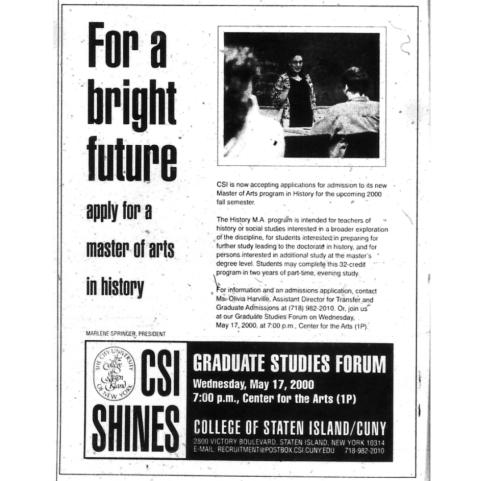
In the Fall of 2000, the program launched its first MA class.
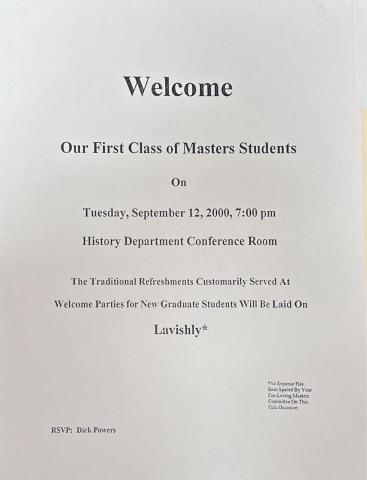
Rethinking the Master's Path
First Years
During the first cohorts, the MA program received a good response from the Staten Island community.
Ursula VanWart was part of the first cohort, and she recalls:
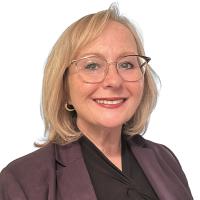
"There had to be a lot of participation and class discussions, and no one slouched. We were also a pretty diverse group as far as experiences and age went. I was 38, and there were some students younger and older than me. Maybe they were looking for a change of career to enhance, you know, their knowledge. Everyone had a lot of different things to contribute."
Rethinking the program
“That was a period when the enrollment was very low. The administration was also a new administration; they didn’t really understand what a master’s in history in the humanities was. They expected us to have enrollment of dozens of students every semester, which was definitely not the case. We had a real problem recruiting students, and the administration was threatening to close the program if we didn’t find students.” Former MA Coordinator Sandra Gambetti
Adapting the Program to the Students' needs
During 2013, the program conducted a survey to get feedback about the interests of its students.
“Apparently, students, when they were going through information sessions, were asking whether we had archeology, whether we had other courses, not just based on readings, but based on something more tangible.” Former MA Coordinator Sandra Gambetti
The idea of creating an Advanced Certificate in Public History was initially explored during conversations among faculty, particularly with former coordinator Ben Mercer. Before his departure, he had been considering the potential for a public history program.
A Program for the Public and Involvement with the Community
With enrollment pressures, the faculty members had to rethink the program’s approach. Through curriculum reviews, student surveys, and open dialogue, the program discovered an opportunity not just to survive, but also to be part of the community.
“The MA program has always been deeply tied to the mission of CUNY and CSI, which is to be the public university of New York City. It makes a lot of sense for this public university to have a Public History Certificate. And at the time, no one else in CUNY was doing this. So, this was a path-breaking thing for the CUNY system, as well as for CSI." Former MA Coordinator Zara Anishanslin.
Out of these conversations emerged a new focus: public history.
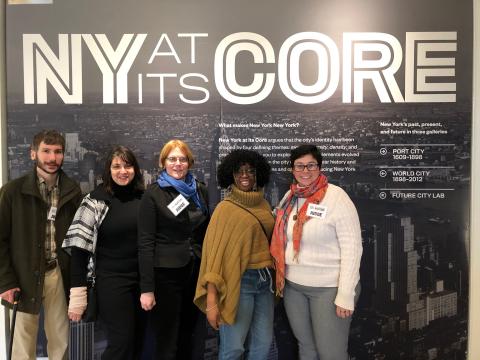
The program created pathways for students to engage directly with history beyond the classroom setup.
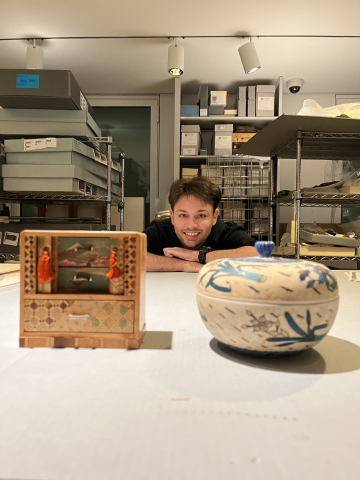
With internships in museums, public spaces, and archives, the program strengthened its ties to New York’s rich cultural institutions.
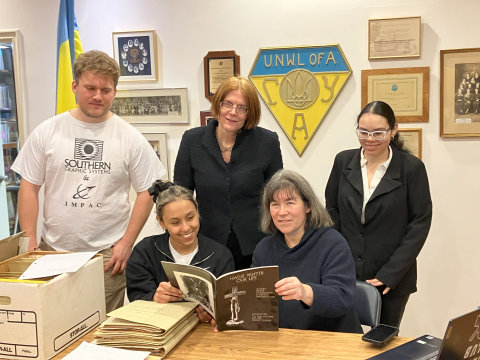
“I have seen that there is a lot of student involvement in what is going on, things up on the web that students have participated in. That practical experience is really important, and it means that when students leave the program, they’re not just leaving with a few courses. They’ve actually undergone that transformation of thinking themselves as active, professional historians, which was always one of the goals.” Former MA Coordinator Catherine Lavender
The program also found a way to contribute to the recent history of Staten Island by leading, during the COVID pandemic, a project that collected experiences from Staten Islanders.
“As a filmmaker and researcher, I’ve had the privilege of following 200+ COVID memory projects since 2020. Among these, Lockdown Staten Island stands out as exceptional. Across the country, many colleges and universities launched COVID collection efforts, gathering and preserving testimonies from students, faculty, and staff during lockdown. Lockdown Staten Island went a step further, offering students the opportunity to create something using these collected testimonies. The documentary film that emerged from this project is striking and unique. Its impact on the student community has been invaluable, and its value for future scholars of the pandemic will be immeasurable.” Charlotte Juergens, documentarian, director of Sunken Roads: Three Generations After D-Day, which premiered in theaters in 2021.
Our Public History students also contribute to the creation and research of local history documentaries, like Rhojay Byfield, who worked with documentarian Heather Quinlan to uncover the story behind Staten Island’s lost AME cemetery for the film American Graveyard.